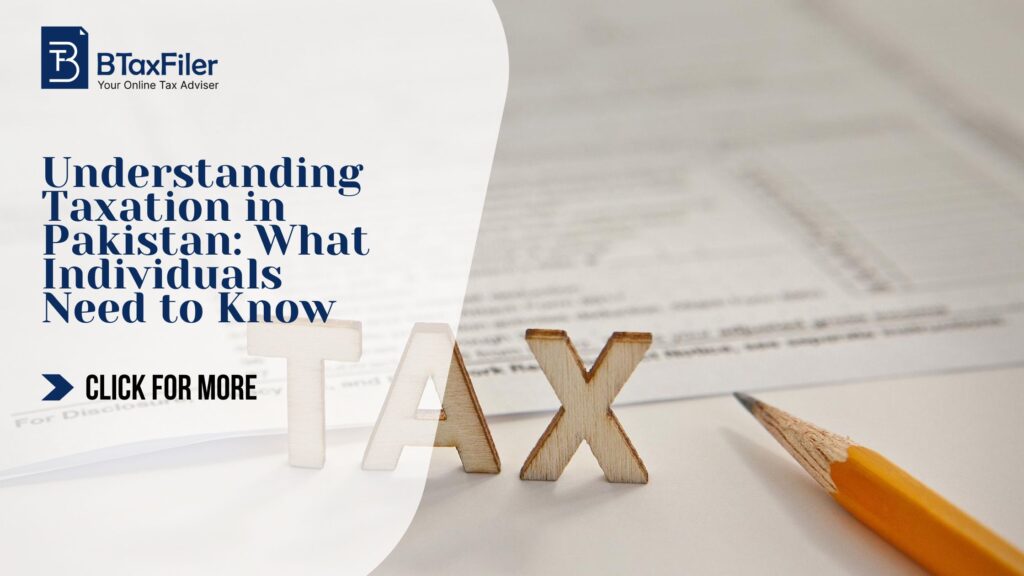Filing taxes in Pakistan is a yearly obligation that can be daunting, especially with specific requirements and documentation involved. Following a structured approach can make the process more manageable and help avoid penalties. This guide walks you through each step of the annual tax filing process in Pakistan, ensuring compliance with Federal Board of Revenue (FBR) requirements and simplifying the process for both individuals and businesses.
Register for a National Tax Number (NTN)
To file taxes in Pakistan, you must have a National Tax Number (NTN), which serves as your unique identifier with the FBR. If you are a new filer, your first step is to register for an NTN. You can do this online through the FBR’s online portal or at an FBR office.
How to Register:
- Visit the FBR’s official online portal.
- Provide necessary details, such as your CNIC (for individuals) or business registration details (for companies).
- Complete the application process and receive your NTN.
Having an NTN is essential for all tax-related activities, including filing returns, paying taxes, and interacting with the FBR.
Gather All Necessary Documents and Information
Collecting relevant documents and information in advance will make the filing process much smoother. For individuals, this may include salary slips, bank statements, investment records, and deduction receipts. For businesses, essential documents include financial statements, expense records, and invoices.
Key Documents to Prepare:
- Income Statements: Details of income earned from salaries, business, or other sources.
- Bank Statements: Record of all transactions for the fiscal year.
- Investment and Property Records: Details of investments, assets, and real estate ownership.
- Deduction Receipts: Evidence of any allowable deductions, such as charitable donations, Zakat, and education expenses.
Having these documents organized can help ensure accurate filing and prevent delays or errors.
Calculate Your Taxable Income
Calculating your taxable income is a critical step in the tax filing process. Taxable income is your total income for the year, minus any allowable deductions. In Pakistan, there are different tax brackets and rates based on income levels, so understanding where you fall within these brackets will help in estimating your tax liability.
Steps for Calculating Taxable Income:
- Add Up All Income Sources: Include salary, business income, rental income, and other earnings.
- Apply Deductions and Exemptions: Deduct expenses for which you are eligible, such as Zakat, donations, and investment contributions.
- Determine Taxable Income: Subtract total deductions from total income.
For example, if you are a salaried individual with additional rental income, you would add both amounts, apply deductions, and arrive at your taxable income.
File Your Tax Return and Wealth Statement
In Pakistan, tax filing typically involves submitting both an income tax return and a wealth statement. The wealth statement outlines your total assets and liabilities, showing your net worth at the end of the fiscal year.
Steps to File Your Return:
- Log into the FBR Portal: Use your NTN to access the online tax filing portal.
- Complete the Income Tax Return Form: Enter all income and deduction details accurately.
- Submit the Wealth Statement: Provide a breakdown of assets and liabilities.
- Review and Submit: Double-check all information for accuracy and completeness before submitting.
For those with complex finances, a tax consultant in Pakistan can assist in preparing and filing returns, ensuring compliance with FBR requirements.
Pay Any Taxes Owed
After filing, if you owe taxes, it’s essential to pay them promptly to avoid penalties. The FBR portal allows for online payment through bank transfers, or you can pay at designated banks. Make sure to note your payment details for future reference and proof of payment.
Steps for Payment:
- Review Tax Owed: The FBR portal will calculate any outstanding tax based on your return.
- Choose Payment Method: Options include bank transfer or in-person payment at an authorized bank.
- Complete Payment: Ensure payment is made by the due date to avoid late fees.
If there is no tax due, you can proceed without making any additional payments, as your filing will still be recorded as compliant.
Keep Copies of Your Return and Payment Proof
Once you’ve filed and paid any owed taxes, it’s important to keep copies of all documents, including the filed return, wealth statement, and proof of payment. These records will be useful if you are selected for an audit or need to reference previous filings.
Essential Records to Keep:
- Filed Tax Return: Download or print a copy from the FBR portal.
- Wealth Statement: Keep a copy of the wealth statement for reference.
- Payment Receipt: Proof of payment for any taxes owed.
Storing these records securely ensures you have evidence of compliance, which can protect you in case of an FBR audit.
Read more: Click here to learn about How to Find the Best Tax Consultant in Pakistan.
Understand Key Deadlines and Avoid Late Filing
In Pakistan, tax returns for individuals are generally due by September 30th each year, though deadlines for businesses may vary. Missing the filing deadline can lead to late fees and penalties. If you’re unable to meet the deadline, the FBR may grant an extension if requested with a valid reason. However, timely filing is the best way to avoid penalties and maintain compliance.
Tips for Meeting Deadlines:
- Set Reminders: Mark important tax dates on your calendar or set reminders.
- Prepare Early: Start gathering documents and calculating income in advance.
- Consider a Tax Consultant: Consultants help ensure timely filing and provide reminders for future deadlines.
By adhering to deadlines, you can avoid unnecessary penalties and streamline your annual tax filing process.
Seek Assistance from a Tax Consultant if Needed
For individuals and businesses with complex financial situations, consulting a tax professional can make tax filing easier and ensure compliance. A tax consultant assists with everything from gathering documents and calculating deductions to filing returns and representing you in audits if necessary.
Benefits of a Tax Consultant:
- Expert Knowledge: They understand FBR rules, deductions, and filing requirements.
- Efficient Process: Consultants manage the entire filing process, saving you time and reducing stress.
- Audit Support: If selected for an audit, a consultant represents you and manages the process.
Hiring a tax consultant is a valuable investment, especially for those with high income, multiple income sources, or business interests.
Read more, click here to learn about the Top 5 Benefits of Hiring a Tax Consultant in Pakistan
Conclusion
The annual tax filing process in Pakistan may seem complex, but breaking it down into manageable steps can make it much simpler. From registering for an NTN to filing returns and paying taxes owed, following a structured approach ensures compliance and reduces stress. For those with more complex tax situations, consulting a tax professional can provide added security and peace of mind. By filing taxes accurately and on time, individuals and businesses can avoid penalties, protect their financial health, and fulfill their obligations to the Federal Board of Revenue.







